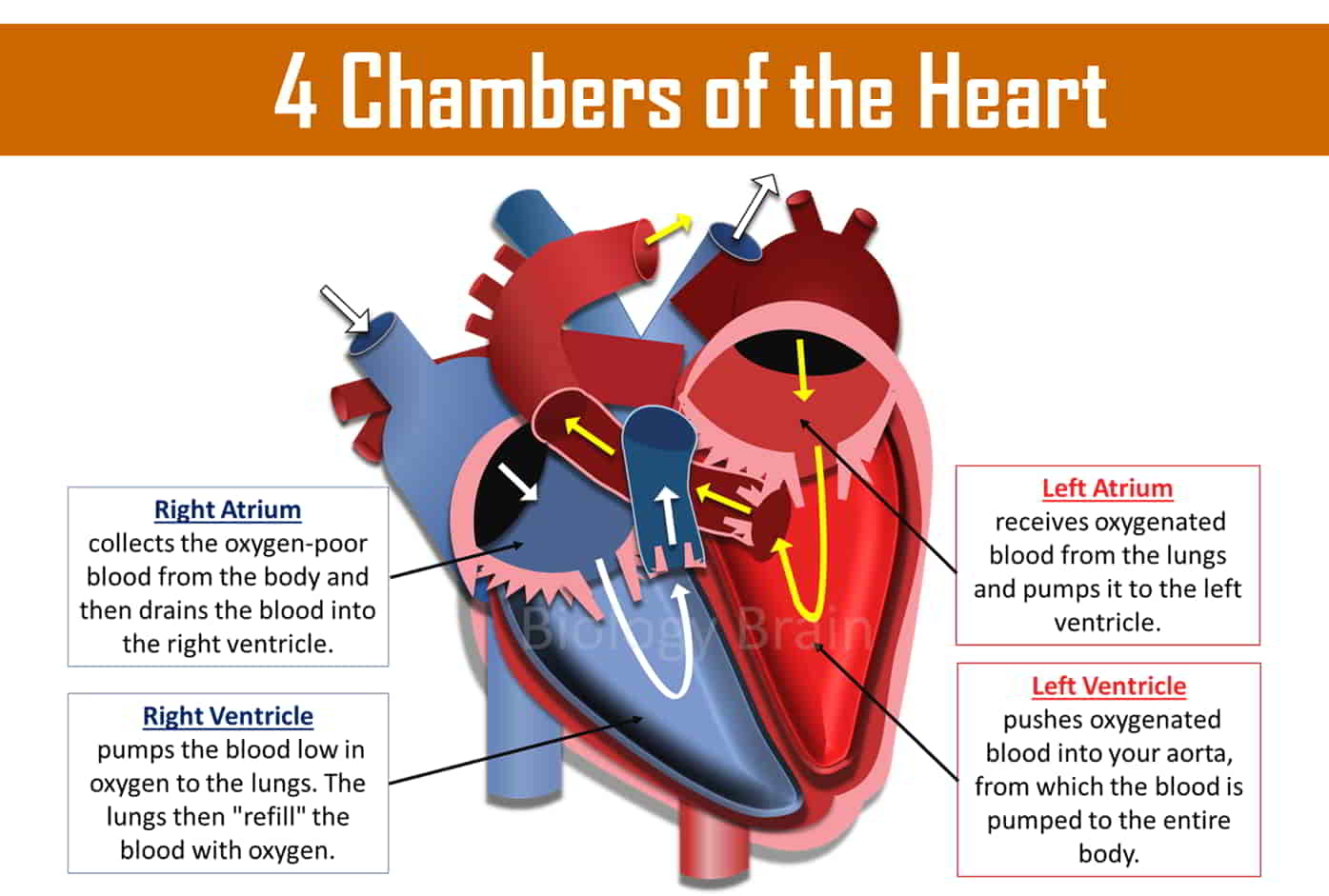As a seasoned cardiology enthusiast, I’ve often pondered upon the intricacies of the human heart. Intrigued by its remarkable ability to pump life-sustaining blood throughout our bodies, I embarked on a journey to delve deeper into its intricate anatomy. My quest led me to an intriguing question: which chamber of the heart boasts the thickest wall?

Image: www.toppr.com
Upon embarking on this investigation, I discovered that the left ventricle holds the distinction of being the heart’s mightiest chamber. This muscular powerhouse bears the monumental responsibility of propelling oxygenated blood throughout the body, supplying vital nutrients to every nook and cranny.
The Physiology of Ventricular Walls
Structural Comparison
The left ventricle’s robust wall is a marvel of biological engineering. Its thickness is a testament to the immense pressure it must withstand as it ejects blood against the formidable resistance of the systemic circulation. In contrast, the right ventricle’s wall is considerably thinner, as it只需 pumps blood to the low-resistance pulmonary circulation.
Adaptations for Efficiency
The left ventricle’s thicker wall reflects its crucial role in maintaining systemic blood pressure, which is significantly higher than pulmonary blood pressure. This architectural adaptation ensures that the heart can generate sufficient force to circulate blood efficiently throughout the body. The thicker septum, separating the left and right ventricles, further reinforces the left ventricle’s ability to handle higher pressures.

Image: www.biologybrain.com
Electrical Significance
The thick muscular wall of the left ventricle also plays a pivotal role in the heart’s electrical conduction system. The interventricular septum serves as a critical pathway for electrical signals to propagate from the right ventricle to the left, ensuring coordinated contraction of both chambers.
Implications for Cardiovascular Health
Understanding the significance of the left ventricle’s thick wall has profound implications for cardiovascular health. Dysfunctions in the left ventricle can lead to debilitating conditions such as heart failure. Weakening or dilation of the ventricle can impair its pumping ability, reducing blood flow to the body and potentially leading to life-threatening consequences.
Various factors, including coronary artery disease, high blood pressure, and valve abnormalities, can contribute to left ventricular dysfunction. Regular monitoring and early intervention are crucial to prevent or mitigate these conditions.
Expert Tips for Optimal Cardiac Health
In light of the left ventricle’s importance, it is prudent to adopt lifestyle habits that promote cardiovascular well-being:
Regular Exercise:
Engage in physical activity for at least 150 minutes per week to strengthen the heart muscle and improve overall circulatory health.
Balanced Diet:
Consume a heart-healthy diet rich in fruits, vegetables, and whole grains while limiting processed foods, unhealthy fats, and excess salt.
Stress Management:
Practice stress-reducing techniques such as yoga, meditation, or deep breathing to mitigate the adverse effects of stress on the heart.
Frequently Asked Questions
Q: Why is the left ventricle important?
A: The left ventricle pumps oxygenated blood to the entire body, supporting all vital organs and tissues.
Q: What happens if the left ventricle becomes weak?
A: Weakening of the left ventricle can lead to heart failure, a condition where the heart is unable to meet the blood flow demands of the body.
Q: How can I strengthen my left ventricle?
A: Engage in regular exercise, adopt a heart-healthy diet, and effectively manage stress to promote left ventricular health.
Which Chamber Of The Heart Has The Thickest Wall
https://youtube.com/watch?v=Qzz595eFbxo
Conclusion
The human heart, with its marvelously intricate anatomy, truly embodies the wonders of biological engineering. The left ventricle, with its robust wall, stands as a testament to the remarkable resilience and efficiency of our circulatory system. By embracing a heart-healthy lifestyle, we can ensure that this incredible organ continues to serve us for a lifetime.
Are you fascinated by the topic and eager to delve further into the wonders of the human heart? Share your thoughts and questions below; I’m always delighted to engage in discussions on this captivating subject.
